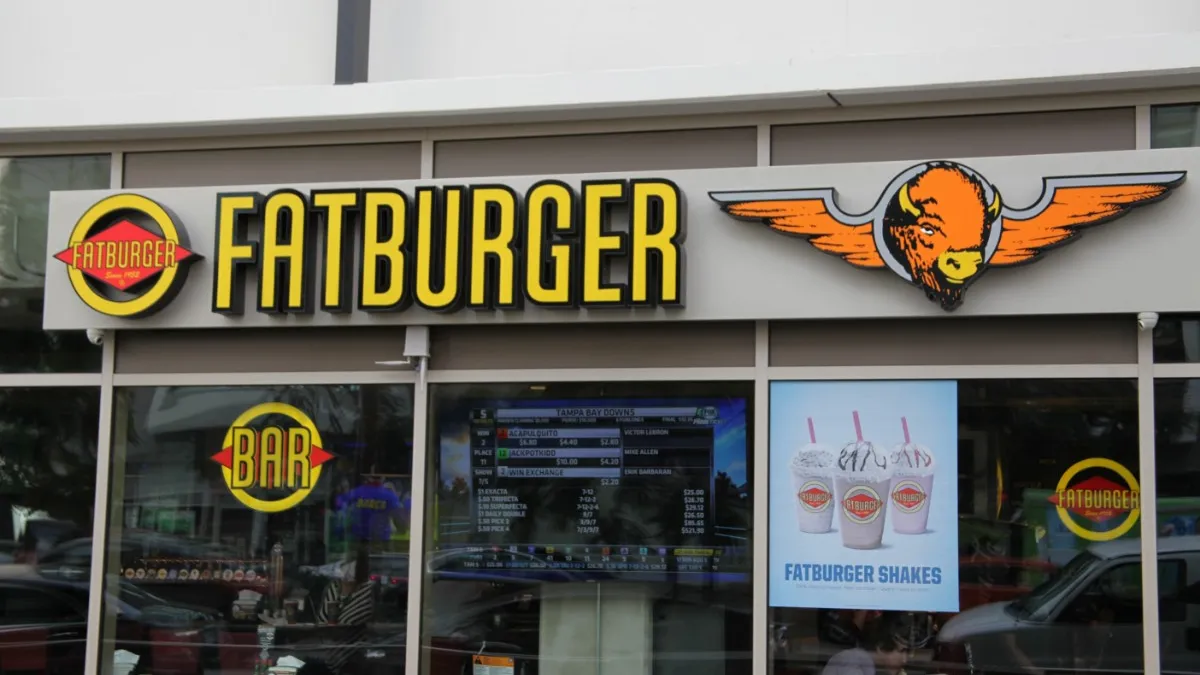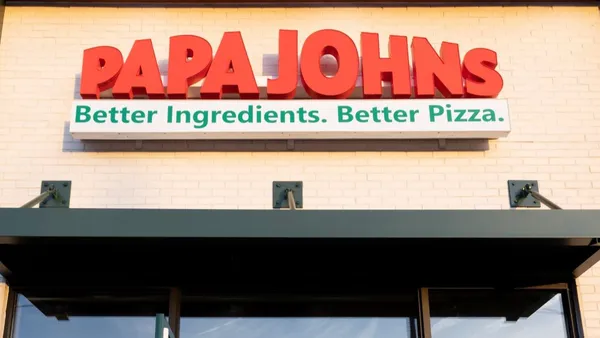Dive Brief:
- Fat Brands has named two current executives as co-CEOs effective May 5, replacing founder Andy Wiederhorn, the company announced Monday. Wiederhorn’s departure was announced in March.
- Fat CFO Ken Kuick and Rob Rosen, executive vice president of capital markets, will maintain their current roles as they assume co-CEO responsibilities.
- Wiederhorn will continue to serve as a member of Fat’s board. At the end of March, Fat fired most of its board and gave seats to three Wiederhorn children, their grandfather and several finance experts.
Dive Insight:
The new co-CEOs will focus on maintaining Fat’s rapid expansion pace and the success of its fastest-growing brands. Kuick and Rosen will also oversee the operations of a manufacturing facility Fat acquired when it bought Global Franchise Group in 2021.
Wiederhorn will still play a major role in the company, according to the press release.
“He will focus on the strategic direction of the company, the allocation of capital, and ensuring the management team executes the Company’s business plan while maintaining quality restaurant operations,” the company said.
Kuick and Rosen both started at the company in 2021, according to the press release. At the time, Fat was buying up several brands. Since then, the company shifted somewhat toward organic unit growth, with 142 store openings in 2022 — the first year it opened more than 100 units. The company says it has a unit-growth pipeline of over 1,000 stores, including a number of co-branded and tri-branded units.
Before joining Fat, Kuick worked as CFO at Noodles & Company for almost three years and led accounting efforts at Caesars’ Entertainment Operating Company and a spin-off called VICI Property group, according to Kuick’s LinkedIn profile. Rosen has worked as a finance expert for more than 30 years in a variety of roles, according to the press release.
For the fiscal year ending on Dec. 25, 2022, Fat incurred a net loss of about $126 million, compared to a loss of about $31 million in 2021, according to Fat’s most recent form 10-K. The bulk of that loss resulted from a net interest expense of $94.8 million, compared with 2021’s net interest expense of $29.1 million.
Some of that growing interest expense stems from the company’s aggressive acquisitions, which were financed by the issuance of fresh debt, according to Franchise Times.
As of Dec. 2022, according to Fat’s 10-K, “the aggregate principal balance of the indebtedness under our whole-business securitization facilities was $1.0 billion.”
The rising cost of borrowing, driven by the Federal Reserve’s increases to interest rates and exacerbated by the implosion of two major regional banks, may make it difficult for Fat to raise further capital. This could explain why the company has stacked its board with finance experts and elevated its EVP for capital markets to co-CEO. Pacifica Yield, a SeekingAlpha analyst, has raised concerns about the restaurant company’s debt load.















